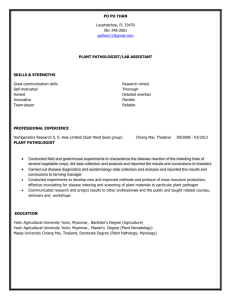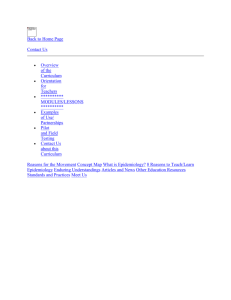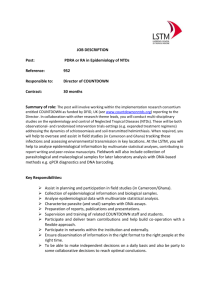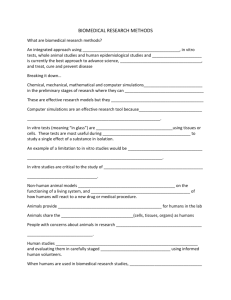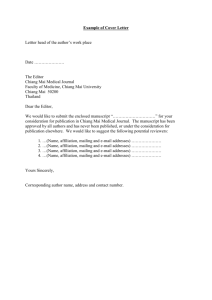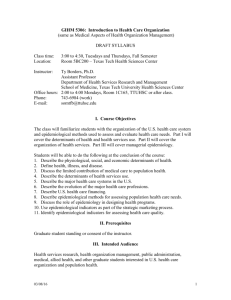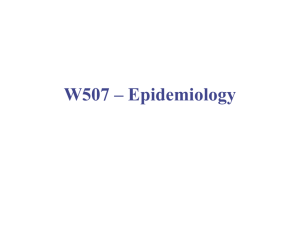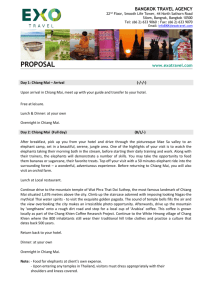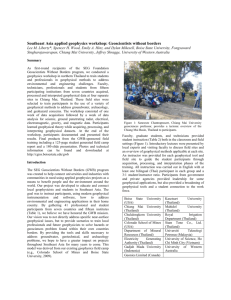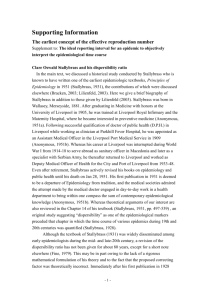Analytical Epidemiology final
advertisement
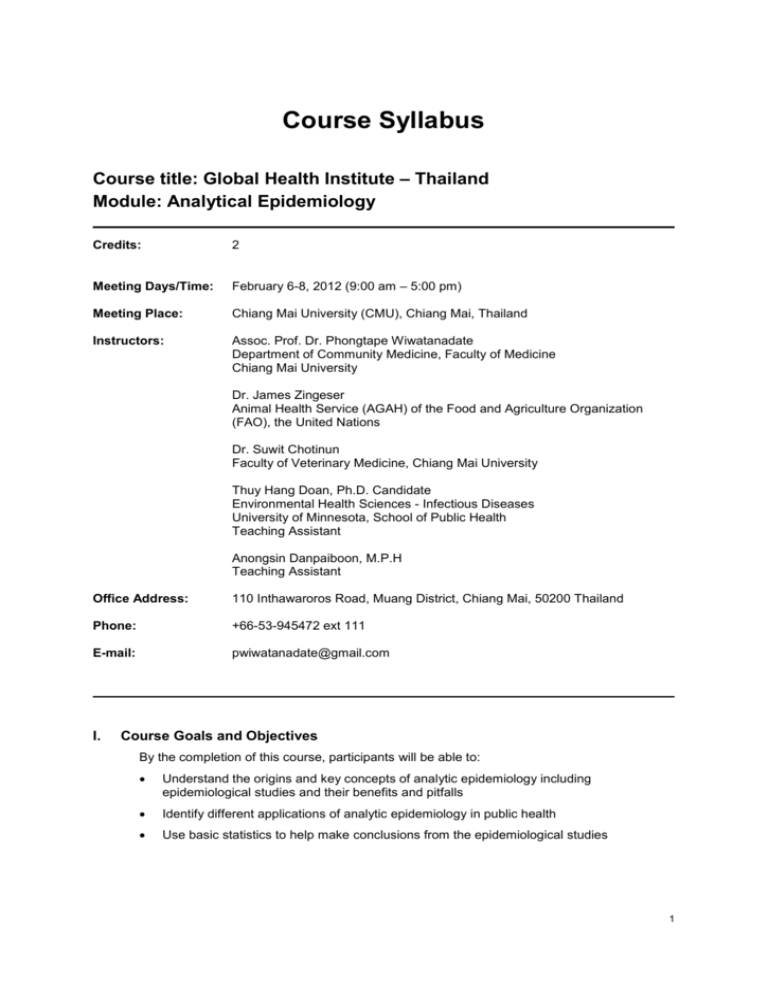
Course Syllabus Course title: Global Health Institute – Thailand Module: Analytical Epidemiology Credits: 2 Meeting Days/Time: February 6-8, 2012 (9:00 am – 5:00 pm) Meeting Place: Chiang Mai University (CMU), Chiang Mai, Thailand Instructors: Assoc. Prof. Dr. Phongtape Wiwatanadate Department of Community Medicine, Faculty of Medicine Chiang Mai University Dr. James Zingeser Animal Health Service (AGAH) of the Food and Agriculture Organization (FAO), the United Nations Dr. Suwit Chotinun Faculty of Veterinary Medicine, Chiang Mai University Thuy Hang Doan, Ph.D. Candidate Environmental Health Sciences - Infectious Diseases University of Minnesota, School of Public Health Teaching Assistant Anongsin Danpaiboon, M.P.H Teaching Assistant Office Address: 110 Inthawaroros Road, Muang District, Chiang Mai, 50200 Thailand Phone: +66-53-945472 ext 111 E-mail: pwiwatanadate@gmail.com I. Course Goals and Objectives By the completion of this course, participants will be able to: Understand the origins and key concepts of analytic epidemiology including epidemiological studies and their benefits and pitfalls Identify different applications of analytic epidemiology in public health Use basic statistics to help make conclusions from the epidemiological studies 1 II. Methods of Instruction and Work Expectations • • • • Lectures, group work, and statistical analysis practices are part of instructional methods for this module. Participants are expected to attend all lecture sessions. Participants are expected to participate in group work to discuss the epidemiological studies and their benefits and pitfalls to the given scenario and make critical appraisal of the given paper. Participants are expected to share their experiences from class in the final session. III. Course Text and Readings Resources: 1. Beaglehole R, Bonita R, Kjellström. 2002. Basic Epidemiology. Geneva: World Health Organization. ISBN 92-4-154446-5. http://whqlibdoc.who.int/publications/2006/9241547073_eng.pdf 2. Computer program “Outbreak at Watersedge”. http://www.sph.umn.edu/ce/trainings/coursepage.asp?activityId=6979 Training materials: IV. The statistical software packages: SPSS for Windows version 20 The participants are required to bring their personal computer with Windows 7 operation system. Course Outline/Weekly Schedule Monday 6thFebruary 9:00-10:30 Lecture: Analytic epidemiology - key concepts, epidemiological studies and their benefits and pitfalls 10:30-11:00 Break 11:00-12:00 Lecture: GIS and Spatial Analysis 12:00-13:00 Lunch 13:00-14:30 Group work: The participants are to work in group to discuss the epidemiological studies and their benefits and pitfalls to the given scenario 14:30-15:00 Break 15:00-17:00 Presentation: A representative of each group is to present his/her group work Tuesday 7thFebruary 9:00-10:30 Lecture: Applying Epidemiology to Research Papers 10:30-11:00 Break 11:00-12:00 Lecture: Applying Epidemiology to Research Papers 12:00-13:00 Lunch 13:00-14:30 Critical appraisal practices: The participants are to practice with the research paper in group to make critical appraisal to the given paper 14:30-15:00 Break 15:00-17:00 Presentation: A representative of each group is to present his/her 2 group work Wednesday 8thFebruary 9:00-10:30 10:30-11:00 11:00-12:00 12:00-13:00 Lecture: Basic biostatistics: concepts, interpretations, common statistical tests and their epidemiological applications (t-tests, chisquare test, ANOVA) Break Lecture: Basic biostatistics: concepts, interpretations, common statistical tests and their epidemiological applications (t-tests, chisquare test, ANOVA) Lunch 13:00-14:30 Statistical analysis practice: The participants are to practice with the example data sets using SPSS for Windows version 20 14:30-15:00 Break 15:00-17:00 Roundtable discussion: Sharing experience each participant learns from the previous 2-day class VI. Evaluation and Grading Class participation (40%) Group work (60%) 3
